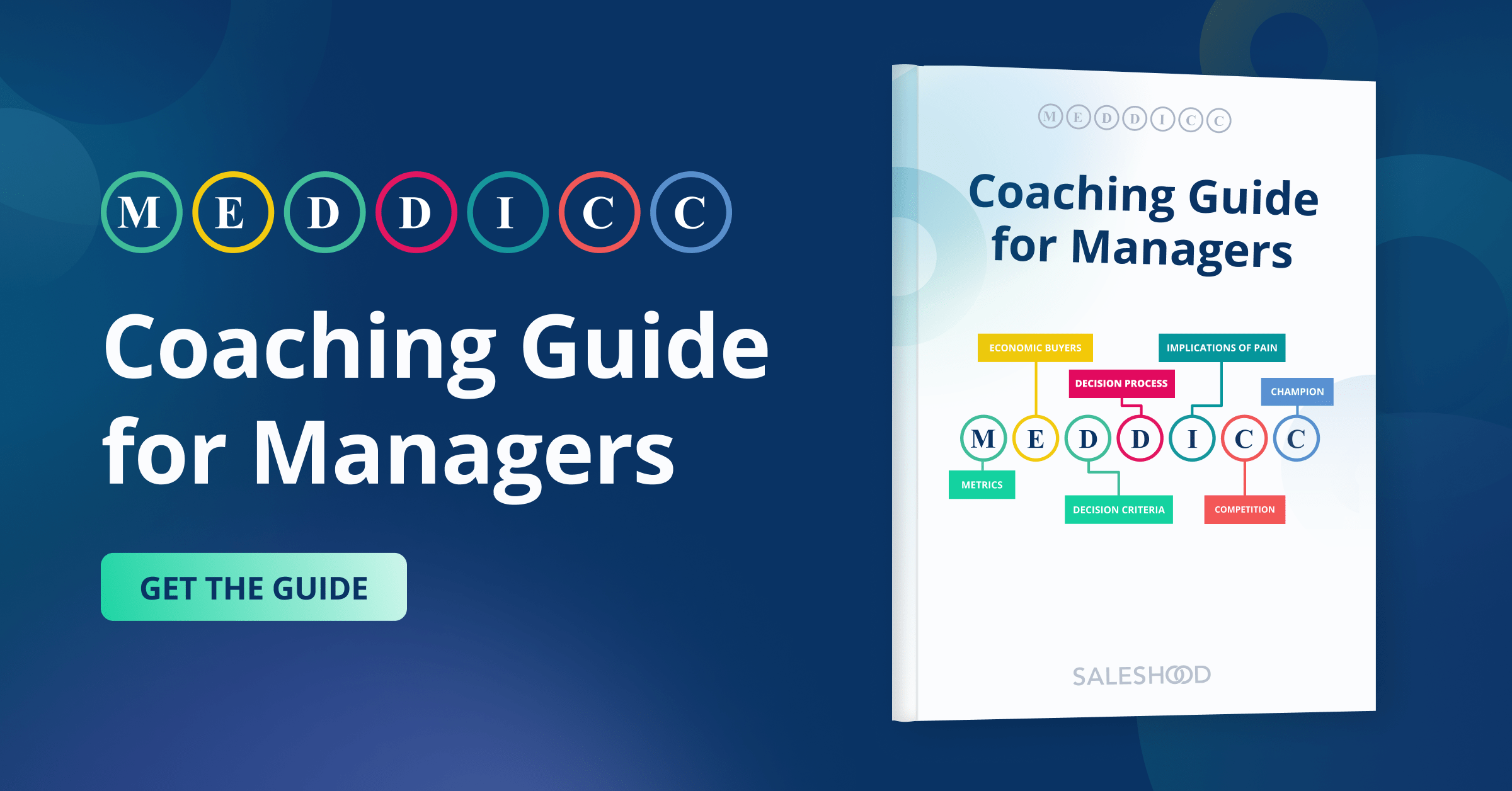Key Takeaways
|
|
|
A recent State of Sales Leadership report by The Growth Hub found that the top three priorities for sales leaders are improving sales enablement and manager training, adopting new technologies, and aligning sales goals with core business strategy. These priorities indicate that today’s sales leaders are focused on helping teams perform more efficiently and adjust quickly to changing market demands.
However, many sales managers are still promoted for individual success rather than leadership expertise. They step into leadership roles without the training needed to coach effectively, forecast accurately, or guide their teams through increasingly complex deals. In turn, they often miss quotas, deal with unpredictable pipelines, and experience slow onboarding cycles.
The good news is that organizations can close these gaps with structured sales management training programs that combine proven coaching frameworks, real deal reviews, and AI-driven role plays to equip managers with the tools to drive consistent, predictable performance.
What is Sales Management Training?
Sales management training is a focused development program designed to strengthen the leadership, management, and coaching skills of sales managers.
Compared to general sales training, which teaches reps how to prospect, pitch, and close, management training focuses on how leaders guide, coach, and operationalize success at scale. The most effective programs, such as SalesHood’s manager coaching program developed in partnership with Winning By Design, emphasize practical learning through real scenarios, frameworks, and AI tools that managers can apply immediately.
In fact, well-structured sales training management programs focus on practical, applied learning. They include:
- Real-world case studies that connect lessons to actual selling challenges managers face every day.
- Coaching practice and role play that prepare leaders to run 1:1s, deal reviews, and pipeline conversations effectively.
- Actionable tools and templates, from deal review scorecards to AI-driven feedback systems, that improve forecasting accuracy and coaching consistency.
Without this type of training, managers often rely on tactics that helped them succeed individually, but those rarely translate into team-wide success.
Benefits of Investing in Sales Management Training
Most sales teams underperform not because reps lack talent but because managers lack the guidance to help them succeed at scale. Investing in sales management training creates measurable results across performance, leadership, and planning.
Let’s break down the most important benefits.
Increased sales performance
When sales managers do not receive specialized training, they often focus only on individual deal coaching instead of building systems that improve team-wide performance. This reactive approach leads to inconsistent results and wasted effort.
Sales training for managers corrects this by teaching leaders how to design scalable processes for prospecting, qualification, and closing. For example, through its training program, SalesHood teaches managers to build repeatable, data-driven habits that lift overall team performance. Over time, these improvements translate into higher quota attainment and faster revenue growth. AI coaching provides the foundation managers and reps need to improve sales productivity and perform better.
Enhanced leadership skills
76% of reps say leadership makes employee satisfaction a priority at their company. Poorly trained managers can damage this satisfaction by failing to motivate or coach their teams effectively and impacting rep attrition.
Structured programs teach managers how to ask better questions, listen deeply, and lead with curiosity. In SalesHood’s AI Role Play environments, managers practice real conversations, from delivering difficult feedback to one-on-ones and deal reviews, and receive instant, AI-driven feedback on tone, empathy, and delivery. This builds confidence, reinforces positive coaching behavior, and helps teams feel supported rather than judged.
Better sales forecasting and planning
In a recent study, 39% of sales professionals said accurate forecasting is hindered by poor data quality. However, forecasting challenges often stem from managers who struggle to analyze data effectively or guide reps on pipeline hygiene.
Sales management training grounded in the MEDDICC framework helps leaders evaluate deals consistently by focusing on metrics, decision processes, and buyer alignment. SalesHood’s integrated AI Deal Review feature enables managers to conduct 10x more reviews with real-time insights, helping executives make faster, more informed decisions about resources, sales campaigns, and growth strategies.
5 Tips for Successful Sales Management Training
Investing in training is not enough if the program lacks structure, reinforcement, or measurable outcomes. To make your sales training programs effective, consider these five proven tips.
- Set clear objectives and goals: Define what you want managers to achieve through training, whether it’s improving forecasting accuracy, coaching effectiveness, or quota attainment. Clear objectives give both participants and trainers a shared target to work toward.
- Tailor training to specific needs: Design content around the real challenges your managers face rather than delivering generic lessons. SalesHood’s customized programs focus on deal execution, MEDDICC coaching, and operational rigor.
- Support continuous learning and development: Training cannot be a one-time event. Provide access to ongoing modules, AI role play simulations, and deal review sessions to keep skills sharp and learning continuous.
- Provide ongoing support and feedback: Equip managers with coaching from senior leaders and tools featuring AI role-playing, allowing them to practice handling real-world scenarios. Regular feedback helps them apply training to their daily work.
- Measure and evaluate training effectiveness: Track whether the program actually improves performance by monitoring metrics such as ramp time, forecasting accuracy, and quota attainment. Use SalesHood’s analytics and Impact Insights dashboards to visualize performance improvements and ROI.
Sales Training in Action with SalesHood
As we saw earlier, only 30 to 40% of sellers are currently meeting their quotas, and the numbers have been trending downward. As a sales enablement platform, SalesHood addresses these challenges by transforming sales training into a continuous, measurable process that aligns with the daily business cadence. By combining structured programs with AI-driven reinforcement, managers can consistently guide their teams and close the productivity gap.
Additionally, through partnerships with Winning By Design, MEDDICC, ASLAN Sales Training and The Brooks Group, SalesHood offers a turnkey training program designed to help organizations up-level front-line performance and coaching skills. The program unfolds in three structured phases:
- Phase 1–Manager Coaching Program (30 days): Here, managers learn how to create a coaching culture through 8 pre-work huddles, live group sessions, and AI coaching exercises. These sessions combine practical exercises, micro-learning modules, and interactive videos, helping managers build confidence as they practice real-life coaching scenarios.
- Phase 2–Personalized 1:1 Coaching: Each manager receives individualized sessions twice a month for three months. These sessions focus on refining deal reviews, pipeline conversations, and 1:1 coaching skills, ensuring lessons are applied in real situations.
- Phase 3–Sales Methodology for Managers (30 days): Managers apply their sales methodology deal evaluation and scoring to real deals using AI-enabled tools. Team reviews, collaborative discussions, and mutual action plans reinforce learning, making coaching consistent, scalable, and tied to measurable outcomes.
SalesHood also provides pre-built sales content and templates covering the entire enablement lifecycle, saving teams the effort of starting from scratch. One powerful example comes from Copado, whose revenue teams closed 67% more deals after adopting SalesHood. John Guerriere, Director of Sales Enablement, shared that within 90 days, win rates doubled, average selling price increased, and more sellers closed more deals.
With solutions like Digital Sales Rooms, just-in-time learning, and AI-driven coaching, SalesHood proves that the right training framework can make a measurable impact on both performance and revenue growth.
Building Stronger Sales Leaders for Lasting Growth
Strong sellers do not automatically become strong managers, which is why sales management training is critical for long-term revenue growth.
Sales training platforms like SalesHood show how modern frameworks supported by AI can deliver measurable ROI. By giving managers the tools to coach effectively, interpret data, and support reps consistently, companies create an environment where performance is predictable and growth is sustainable. Additionally, it collaborates with leading sales training partners, including ASLAN Sales Training and The Brooks Group, to bring expert-led programs and resources directly into SalesHood’s training ecosystem.
Want to see how this works in action? Book a demo today and discover how better-trained managers drive stronger performance and consistent revenue growth.
FAQ Section:
1. How does sales management training differ from general sales training?
- General sales training teaches reps how to sell, while sales management training teaches managers how to coach, forecast, and lead their teams effectively.
2. Why do most sales training programs fail?
- Programs often fail because they lack reinforcement. Without ongoing practice and feedback, reps forget up to 90% of what they learn within 30 days.
3. What role does AI play in modern sales training?
- AI powers AI role-playing, assessments, and just-in-time feedback, helping managers and reps practice in real-world scenarios and improve retention.
4. How does sales management training improve forecasting accuracy?
- Training teaches managers how to analyze pipeline data, interpret metrics, and set realistic targets, which reduces uncertainty in sales campaigns.




